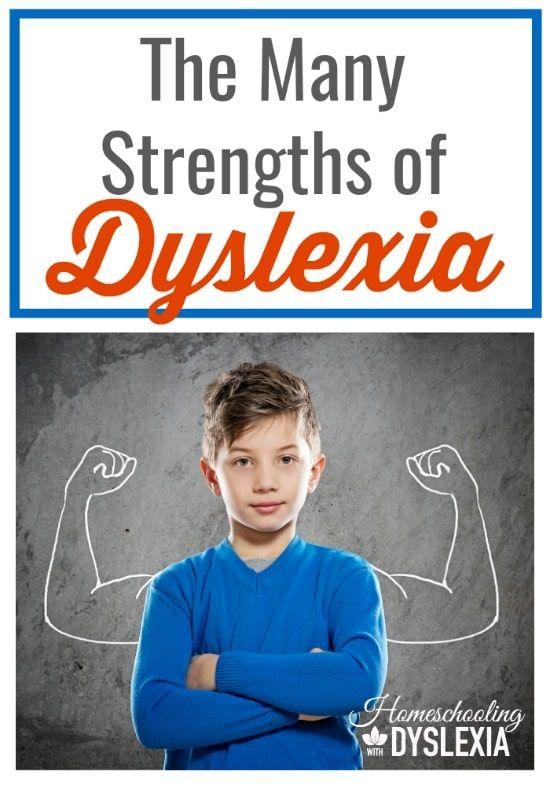Standing before a room of conference attendees, I read the LONG list of the common signs of dyslexia – over 50 areas where people with dyslexia struggle. These unexpected deficits are commonly referred to as the signs of dyslexia. However, as more and more research is done on the unique brain wiring of the dyslexic mind, some pretty impressive strengths of dyslexia are being made known.

As a homeschool conference speaker, I am thrilled to be able to help educate and encourage families who are teaching kids with dyslexia. However, hearing this long list of dyslexia’s deficits can be overwhelming.
A New Definition: Strengths of Dyslexia
Good news! There is a growing trend to diagnose and identify people with dyslexia by their strengths. This new view of dyslexia is founded on the idea that the brains of people who are dyslexic are simply wired differently. While these differences can look a lot like a disability in the early years of school – while trying to master reading, writing and spelling – once dyslexics come to know, understand and work with their strengths they often do very well, not despite their dyslexia, but because of their dyslexia.
Dyslexic Strengths
Dyslexic brains are organized in a way that makes making big picture connections strong, at the expense of weaknesses in processing fine details. Dyslexic brains are especially good at putting together big pictures, seeing larger context, or imagining how processes will play out over time.
- Often highly creative
- Entrepreneurial
- Persistant
- Can easily grasp new concepts
- See patterns, connections and similarities that others don’t see
- Excellent at solving puzzles
- Holistic: they see the big picture, don’t get lost in details, get to the important aspects
- Excellent comprehension of stories read or told to them
- Strong reasoning skills
- Understand abstract ideas
- Inclination to think outside the box
Dyslexic Careers
These strengths lend themselves nicely into these careers.
- Science/Research
- Marketing/Sales/Finance
- Design
- Woodworking/Carpentry
- Artist
- Actor
- Architect
- Mechanic
- Engineering
- Photography
- Music
- Athletics
- Software design
As homeschoolers, we have the freedom to stop thinking of dyslexia as a disorder, disability or disease that needs to be cured. People who are dyslexic have brains that function differently. While these differences can look like a disability in the early school years, once dyslexics come to know, understand and work with their strengths they often do amazingly well, not despite their dyslexia, but because of their dyslexia.
For more information on dyslexic strengths, I highly recommend reading The Dyslexic Advantage: Unlocking the Hidden Potential of the Dyslexic Brain by Brock and Fernette Eide.






Our children have never been formally diagnosed, but we figured out what we were dealing with and the Lord provided what we needed to homeschool them. It was never the pricy programs or therapies or tutors; He taught me how to be creative with what was available–movement, games, time, and using their strengths. Daughter’s strengths were music, love of words, poetry, and stories, and art. She’s now a college graduate, co-author of an ABC book about our county, and a preschool teacher. Son’s strengths were math, mechanical, science, and nature. He starts college tomorrow to become an auto mechanic. He can produce a visual map in his brain of what his hand feels up under and inside a vehicle even if he can’t see. Dyslexia gives strengths that non-dyslexics can not have by virtue of their different brain “wiring”. I’ve told my children—Dyslexia is not a disability but a UNIQUability.
I love this post! I really appreciate that you pointed out the positives of dyslexia rather than the negatives as people most often do. Thanks for sharing!